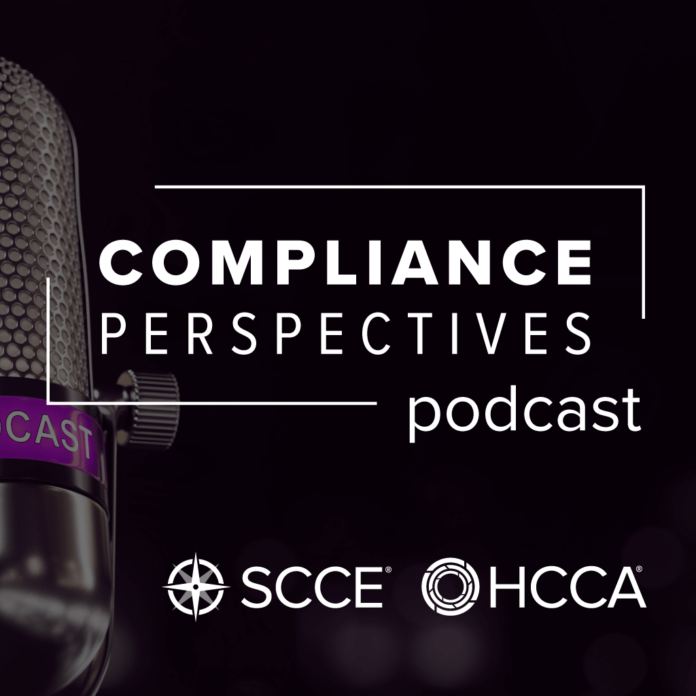Podcast: Play in new window | Download (Duration: 14:43 — 13.5MB)
Subscribe: Apple Podcasts | Email | TuneIn | RSS
A lot happened in compliance in 2022, with a large number of lessons for 2023. To sort it out we turned to Michael Volkov, of the Volkov Law Group and host of the Corruption, Crime & Compliance blog and podcast. In this Compliance Perspectives podcast he addresses several key pieces of learning for compliance teams.
FCPA
While 2022 may have started out slowly in terms of resolutions, the year ended on a busy note with several settlements and the revised corporate enforcement policy. One thing the DOJ made clear is that it is taking a sharp look at compensation policies to see if there are both incentives and disincentives for wrongdoing. The latter should include claw backs, deferred compensation and punishment for wrongdoing.
Culture (more below) was also a keen area of focus and is likely to remain so. The perennial issue of third-party risk remains, as well.
Where should compliance teams focus? The contract to invoice to payment stage of deals is where FCPA violations tend to occur.
Also, be on the lookout for more major dispositions shortly.
Sanctions
Last year, he reports, was the year of the trade compliance officer. Complying with an ever-increasing and changing list of Russia-related sanctions kept teams busy day and night.
The good news is that companies seem to be on top of things. The bad news is, he warns, that the Department of Justice has warned that this could be the new FCPA, with large fines for wrongdoing. He also warns that OFAC is a strict liability enforcer. Intent does not matter.
As big an issue as this has been, there is often still too much of a separation between the trade compliance and main compliance groups. That will likely need to change, if it hasn’t already.
Culture
Culture has gotten the attention of the enforcement community with a particular focus on ethics. Done right, the culture can be the most effective corporate control an organization has.
Done wrong, and it can cause not just problems, but liability for the organization. The DOJ is looking at culture closely and recent case law out of Delaware has extended the due care responsibility to senior leadership.
To survive and thrive organizations, he believes, need to define their culture, attend and imbed it, monitor, and intervene when they see deficiencies.
Finally, the board and senior management need to be educated on the importance of the right culture. It’s not just about saying “do the right thing.” It’s about expectations and norms around the mission, how we treat each other and how we treat those outside the organization.
Listen in to learn, including what he sees for the future of compliance programs.


